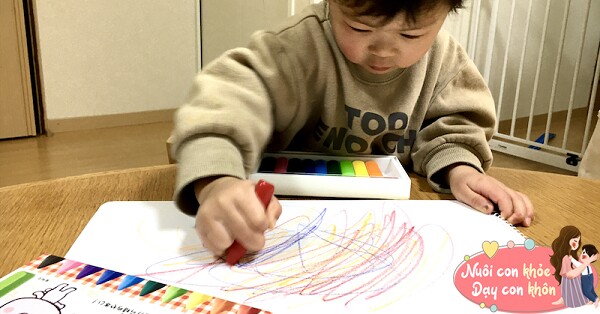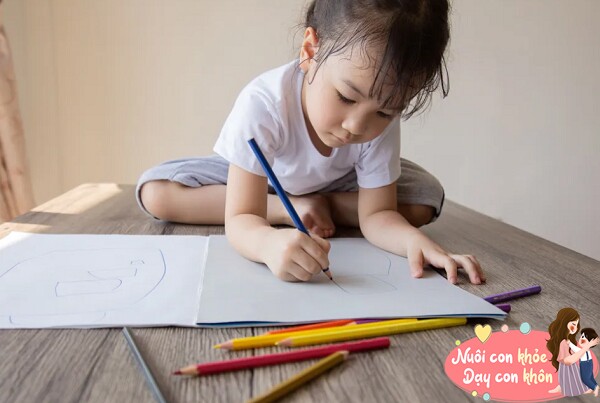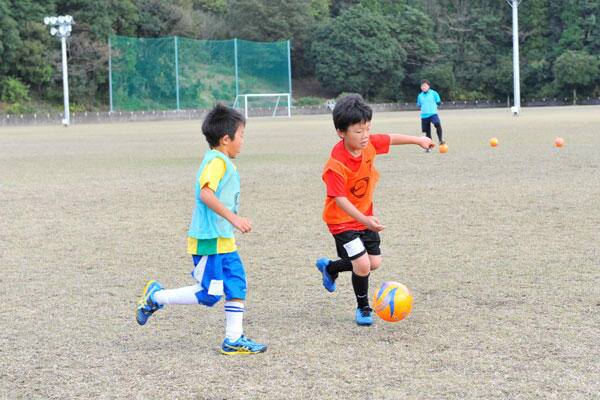Parents often strive to pave a smooth path to success for their children. In this process, the word “talent” often becomes a standard by which future achievements are weighed.
However, experts believe that while talent is a good foundation, it is not the deciding factor in a child’s success. Instead, parents should focus on fostering independence and resilience, equipping their children with the tools to overcome challenges and create a successful future for themselves.

Talent: A Starting Point for Children’s Success
First, let’s acknowledge that each child is unique and brings different talents to the world. Every child has their own identity, with special qualities and abilities that contribute to the rich diversity of our society.

Talent serves as a starting point for children’s success. Some children have an innate sensitivity to numbers, while others excel in language; some possess a natural ear for music, and others display extraordinary creativity in art. These talents add a touch of brightness to their journey, boosting their confidence as they explore themselves and the world around them.
However, talent is just the beginning, not the end goal. While it can open doors, progressing further relies on hard work, persistence, and unwavering effort. Children need a supportive environment where parents and teachers can encourage and nurture these abilities.

Perspiration Fuels Brilliance
The lives of countless historical figures teach us that success is often intertwined with relentless effort. Einstein, known as the founder of modern physics, didn’t achieve his feats through sheer luck but through countless experiments and calculations.
Beethoven, a genius in the history of music, faced the challenge of deafness. Instead of giving up, his disability fueled his creative willpower.
These examples prove that talent is important, but what matters more is the persistence to pursue one’s dreams and the relentless drive to strive for improvement.

Children need to develop persistence and a growth mindset.

Interest: The Best Teacher
As children grow, interests often stimulate potential more effectively than innate talent. When a child is deeply interested in something, they are more likely to explore, learn, and never tire of it, even when faced with difficulties.
This passion and enthusiasm act like a flame, helping children overcome obstacles and embrace challenges. When children feel excited about what they are doing, they are willing to invest their time and energy, leading to skill development and knowledge acquisition.
This type of intrinsic motivation is more enduring and powerful than relying solely on talent. While talent can give children a head start, without passion, it can go to waste. Conversely, a child without standout talent but with a burning passion can develop into an expert in their field of interest.
Great figures in history are known not only for their innate talent but also for their persistence and love for their craft.
Therefore, parents should pay more attention to their children’s interests and encourage them to pursue their passions. This may include enrolling them in extracurricular activities, art or sports classes, or clubs that align with their hobbies.

Mentality Determines the Pace of Development
In today’s highly competitive social environment, a positive attitude is crucial. A child with a positive mindset can quickly adapt, pick themselves up, and face obstacles and failures head-on.
Resilient children learn from their failures, accumulate experiences from their successes, and keep moving forward. This resilience helps them develop coping mechanisms for pressure and problem-solving skills, laying a solid foundation for their adulthood.
Moreover, children with positive attitudes tend to build better social relationships. They know how to communicate, share, and collaborate, benefiting themselves and creating a positive environment for those around them. A cheerful and optimistic child will attract others and become the center of healthy relationships.

Mentality plays a key role in a child’s development.
On the other hand, children who rely too heavily on their talent and fear failure may struggle to cope with challenges. When faced with difficulties, they may become discouraged, lacking the resilience to embrace new experiences.
Therefore, fostering resilience and a positive mindset in children is essential. Encouraging them to experiment, explore, and accept failure as a natural part of learning will help them develop a growth mindset and perseverance.

The True Nature of Education: Growth
The ultimate goal of education is to help children become better versions of themselves, not just to achieve external success.
In this process, parents should focus on their child’s holistic development, encompassing knowledge, skills, emotions, attitude, and more.
While talent can give children an advantage in a particular field, true maturity comes from learning how to learn, think critically, get along with others, and face life’s challenges. These abilities are valuable assets that will accompany them throughout their lives.

Accompanying Your Child: The Longest-Lasting Form of Love
Finally, no matter how talented or intelligent your child is, your companionship is irreplaceable. Parents need to provide their children with sufficient attention, support, and encouragement as they grow up. Creating a loving and safe environment will boost their confidence to explore the world and reach their full potential.
When they encounter difficulties, be their solid support, and when they make progress, be their sincere cheerleader. Your words of encouragement and recognition can be a powerful motivator for them to overcome obstacles.
This companionship not only helps build their confidence and resilience but also makes them feel the warmth and strength of family. Beautiful memories of family time will become a valuable spiritual asset, making them feel loved and valued.

Your companionship is the longest-lasting form of love.
As your child grows, your efforts, guidance on interests and attitude, and companionship are all vital. Parents are not just caregivers but also teachers and companions on the journey of self-discovery. By listening and understanding, you can help your child shape their dreams and personal goals, providing a clear direction for their future.
So, view talent reasonably and embrace your child’s growth moments with an open mind. This means not only celebrating their successes and outstanding talents but also cherishing their small steps and the lessons they learn from failures and challenges. Each of these moments holds unique value, contributing to their development.
The Storyteller: A Mother’s Belated Realization of Her Mistakes with Her Bipolar Daughter
“Parental influence is one of the most significant factors in a child’s development. When parents frequently engage in negative talk and criticism of others, it can have a profound impact on their child’s emerging personality and psychological well-being. It shapes how they view themselves and others, potentially leading to a distorted sense of self and unhealthy relationships.”







































